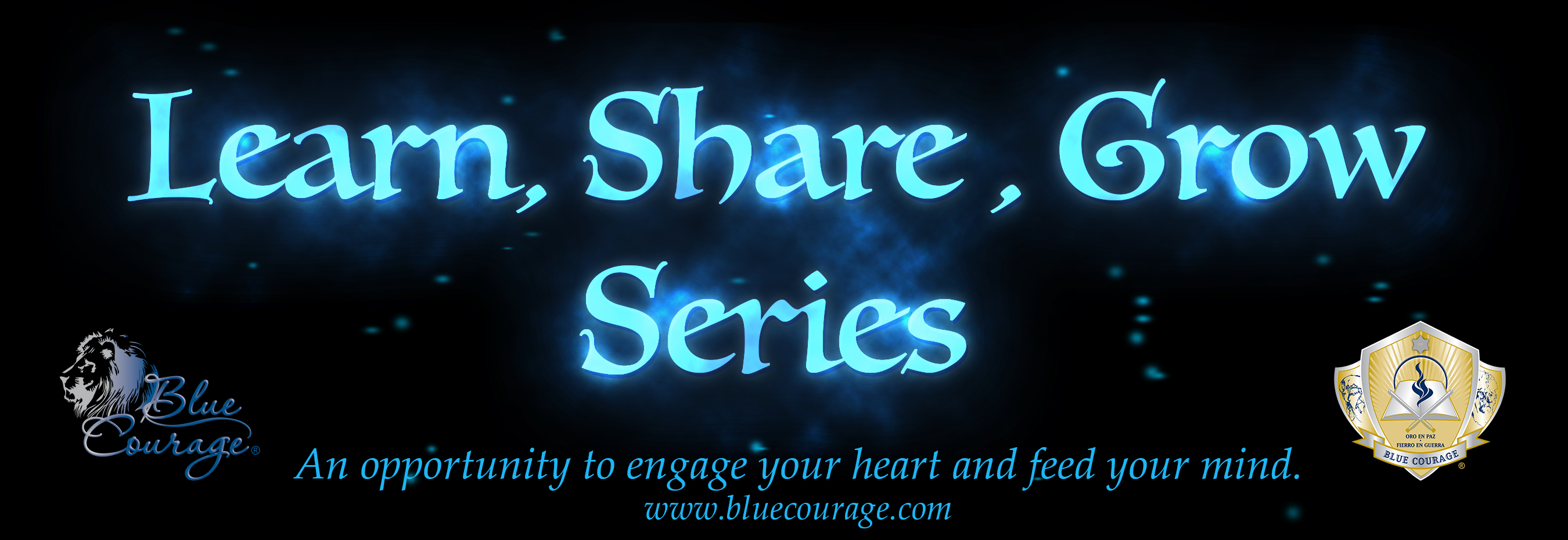Learn, Share, Grow - Why Emotional Intelligence Teams Thrive

September 20, 2021
Below is a lesson from Search Inside Yourself Leadership Institute on emotional intelligence and how it can help teams thrive, as well as our key learnings.
The Blue Courage team is dedicated to continual learning and growth. We have adopted a concept from Simon Sinek’s Start With Why team called “Learn, Share, Grow”. We are constantly finding great articles, videos, and readings that have so much learning. As we learn new and great things, this new knowledge should be shared for everyone to then grow from.
Why Emotionally Intelligent Teams Thrive
Work is never going back to “normal,” and teams will never be the same. This new era of work presents us all with an opportunity for our teams and our work to be better than before. Some teams have stayed productive and inspired throughout this perhaps uncomfortable and forced transition to a new way of teaming. Still, most, however, saw a lack of engagement and motivation, which eventually led to what’s know as “The Great Resignation.” According to Gallup’s 2021 State of the Global Workplace report, 80% of employees across the world are not engaged in the workplace.And, engagement is unmistakably vital to achieving organizational goals—according to the Corporate Leadership Council, work engagement improves employee performance by up to 20 percentile points.
Luckily, researchers have identified the factors that support employee engagement the most. Evidence from the peer-reviewed Mindfulness Journal shows a predictor effect of EI on work engagement. The 2015 study looked at more than 300 employees from the U.S. and Australia and found that higher emotional intelligence is significantly related to higher work engagement. From a separate study focused on teams, “the research findings demonstrate that a high average level of individual emotional intelligence of team members predicts stronger team performance.” Even in this new hybrid landscape, it is possible to support individual team members’ well-being and group success—with emotional intelligence being the crucial foundation to develop trusting and thriving teams.
Continue reading here.
Key Learnings:
- 80% of employees across the world are not engaged in the workplace. (Gallup’s 2021 State of the Global Workplace report)
- Work engagement improves employee performance by up to 20 percentile points. (Corporate Leadership Council)
- Higher emotional intelligence is significantly related to higher work engagement. (Mindfulness Journal)
- High average level of individual emotional intelligence of team members predicts stronger team performance.” Even in this new hybrid landscape, it is possible to support individual team members’ well-being and group success—with emotional intelligence being the crucial foundation to develop trusting and thriving teams.
- The most critical factor in determining team success was psychological safety.\
- Psychological safety is “a shared belief held by members of a team that the team is safe for interpersonal risk taking.” In this environment, team members feel safe enough to be vulnerable, take risks, and be authentic without fear of retribution. (Harvard organizational scientist Amy Edmonson)
- Emotional intelligence is a skill set that includes both the ability to understand and manage one’s own behaviors, thoughts and emotions, as well as the ability to interact skillfully (and compassionately) with others.
- “High levels of emotional intelligence, our research showed, create climates in which information sharing, trust, healthy risk-taking and learning flourish. Low levels of emotional intelligence create climates rife with fear and anxiety.” Daniel Goleman, Richard E. Boyatzis and Annie McKee in Harvard Business Review
- What often hinders our ability to work well with others is our own thoughts, emotions, influences and biases, and our learned biases are often so subtle that it’s easy to deny they exist. Yet all of these internal experiences influence hiring decisions, trust between colleagues, treatment of team members and, consequently, group psychological safety.
- When it comes to directly managing challenges with others, emotionally intelligent teams don’t shy away from the difficult emotions that might arise during conflict. Teams that have strengthened self-awareness and self-management skills have a greater ability to notice what they are feeling and express it in a healthy way while regulating their stress response.
- When you can meet challenging moments with care and openness, you strengthen relationships within your team, making you more resilient to the challenges ahead. Conflict and difficult conversations then become fertile ground to water the seeds of trust, connection and psychological safety.
- Increase psychological safety:
- Increase your mindfulness - Mindfulness is the foundation for growing and developing both the intrapersonal and interpersonal domains of emotional intelligence. It also helps you to cultivate an attitude of curiosity and openness, which will help you during conflict or when addressing challenges as a team.
- Try an appreciation round -This is a moment when anyone can raise their hand and take a moment to share their gratitude to someone else on the team. Appreciation rounds can turn down any “threat-sensors” that may be on at the beginning of a team meeting and build instant connections through expressing appreciation.
- Determine (or recreate) group norms and write them down - write out a team “manifesto.” On it, you can include your team vision and, asking for input on what the operating ‘norms’ should be. Let this be a co-created experience so that each team member feels they are a part of this collaborative process.
- Psychological safety - allows you to acknowledge and take care of some of your team member’s needs and support their well-being while increasing performance and effectiveness at the same time.
Stay connected with news and updates!
Join our mailing list to receive the latest news and updates from our team.
Don't worry, your information will not be shared.
We hate SPAM. We will never sell your information, for any reason.

